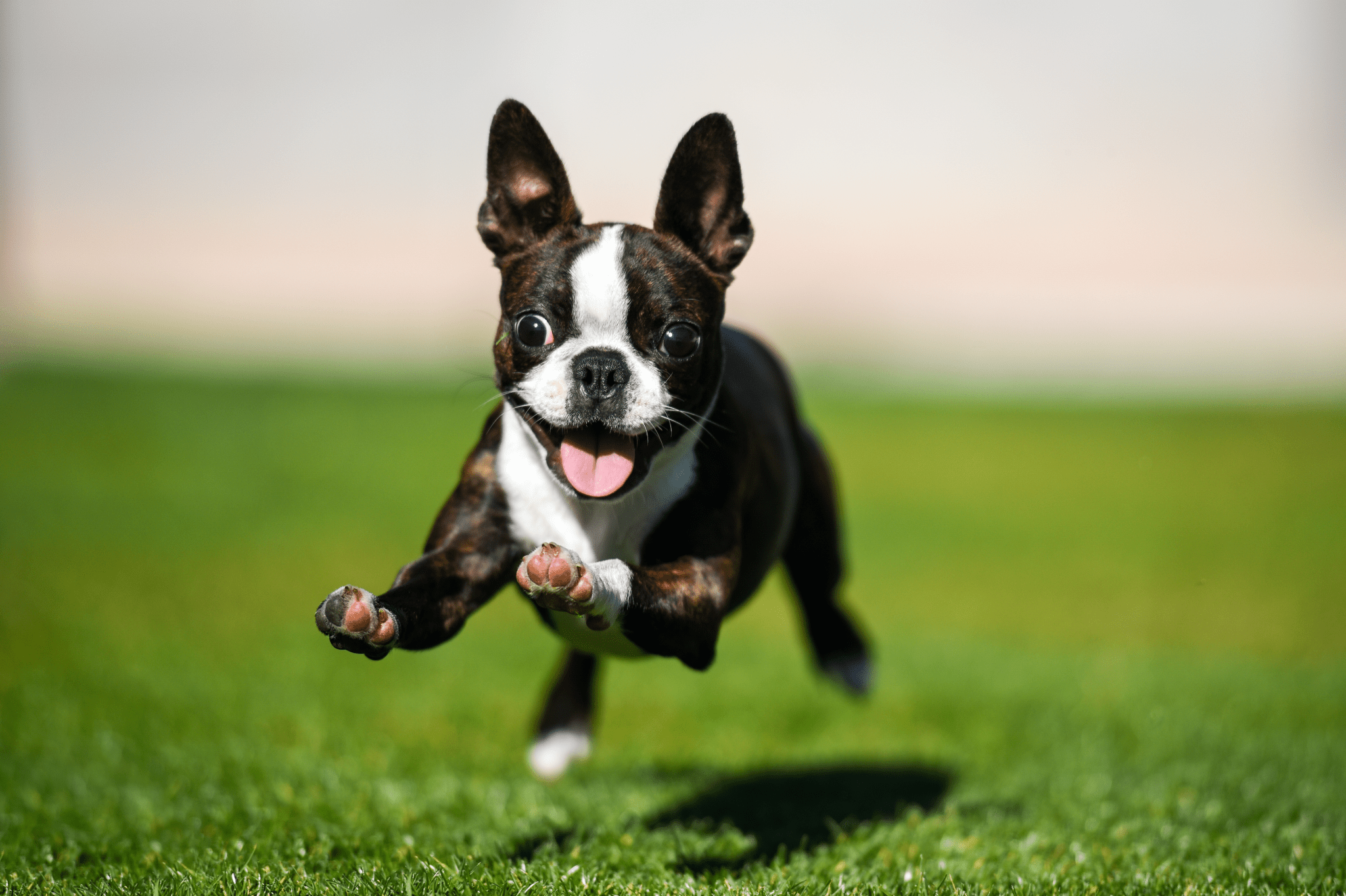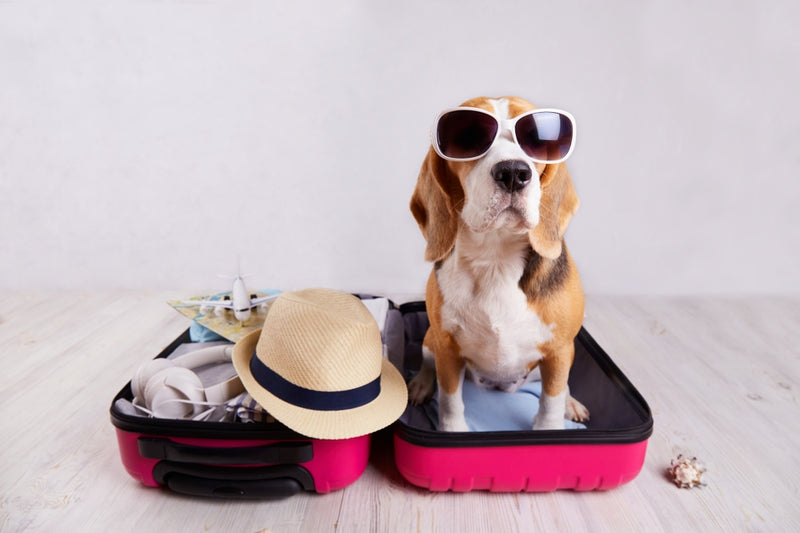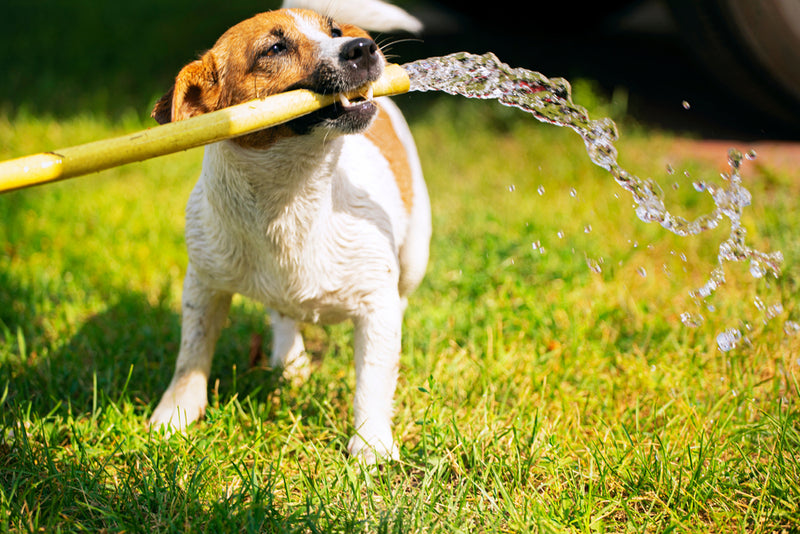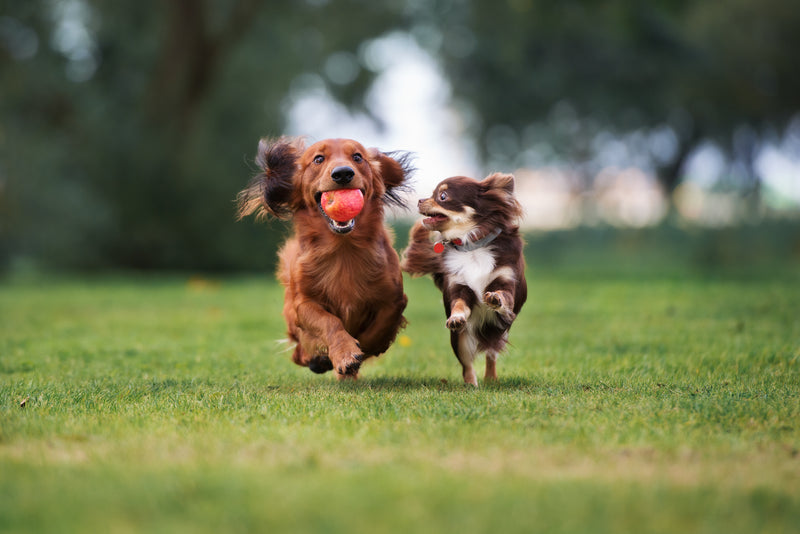
Why Do Dogs Get The Zoomies?
Does your pet dog ever amaze or even startle you with a sudden burst of rapid activity? Your pup might leap from the sofa to the chair, bound around the room, and then repeat the leaping. Sometimes, dogs suddenly and impulsively bound through the yard like they're chasing a squirrel, but there are no fluffy rodents to be seen.
To humans, zoomies often appear to occur randomly and without provocation. Still, they happen often enough that vets have named them frenetic random activity periods, also referred to as FRAP. Find out why dogs get the zoomies and what, if anything, responsible pet owners should do.
Why do dogs get zoomies?
Almost all dogs may occasionally experience FRAP, but the urge to zoom around the house or yard strikes younger pets more often. The American Kennel Club observed that the desire to zoom tends to strike some dogs after getting released from their crate in the morning, after taking a bath, or after experiencing anxiety triggers, like storms, separation from their humans, and fireworks. If pet parents notice a pattern, they might take steps to ease an anxious pet or exercise an extremely energetic one.
Occasional cases of zoomies should not cause undue concern. Sometimes, dogs just need to release pent-up energy or express relief that an unpleasant situation has passed. Like children, they sometimes run and leap for the sheer fun of it. Thus, pet parents should let the occasional urge to zoom pass, especially if the dog's behavior won't cause any damage or injuries.
Of course, the occurrence of FRAP also offers an excellent opportunity to redirect the dog's energy. Perhaps it's time for a game of outdoor catch, a long walk, or some active training. Constant zoomies might signal that owners need to address a source of anxiety or ensure the pet enjoys more physical activity. In that case, frenetic random activity periods might not occur randomly at all.
How to relieve dog anxiety
Some dogs suffer from anxiety that may cause problems, like destructive behavior, incessant yapping, or a poor disposition. While some folks think that certain breeds tend to act more anxious than others, this problem can impact almost any kind of dog. For instance, many dogs react poorly to the sound of thunder, but after the storm passes, they return to their typical jovial personality.
When even well-trained dogs feel anxious, they might soil the carpet, chew on shoes, or hide under the bed. Fluffy or Fido can learn to associate these occasions more with pleasant experiences than with bad ones. Simple and effective remedies often include playtime, exercise, or a grooming session. If loud noises from the outdoors, like fireworks or thunder, bother your pet, you might consider investing in some insulating curtains.
Just like many people rely on calming supplements, so can dogs. Depending on the dog's weight, they get from one to five tasty Chillout Bites to help take the edge off. Moe's Health Pets makes chews that contain dog-safe ingredients, like chamomile, hemp powder, valerian root, and amino acids.



